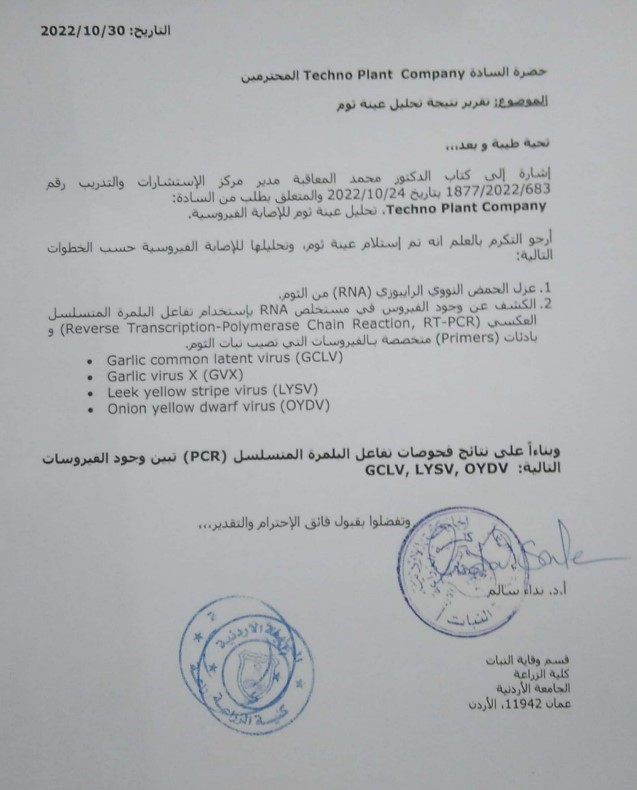AMMAN — Abdullah Al-Zaben, the head of the
Jordan Exporters and Producers Association for Fruit and Vegetables, has expressed concerns
about the Ministry of Agriculture’s organization in managing the importation
process for vegetables and fruits.
اضافة اعلان
Despite the presence of ample local products to meet market
demand, Zaben told
Jordan News that the ministry recently imported a container
of plums from South Africa, bypassing local options and failing to protect
domestic production.
Highlighting the significance of agriculture and the support
for farmers emphasized by
His Majesty King Abdullah II, Zaben stressed the role
of agencies and organizations in developing the agricultural sector.
The association comprises farmers and pioneering investors
in the field, and Zaben expressed surprise at the ministry's claim that some
investors and farmers prioritize personal interests over the interests of
citizens and the Kingdom.
He pointed out that the ministry imported 9,000 tonnes of
garlic, surpassing the volume of local production.
This decision was made to resolve a neighboring country's
problem at the expense of the Kingdom’s
agricultural sector.
Questioning the absence of participatory decision-making
advocated by His Majesty, Zaben refuted the ministry's incorrect information
regarding local consumption of plums.
Consumption claims were actually less
While the ministry claimed a daily consumption of 100
tonnes, market imports suggest a daily consumption of only 4 tonnes.
He also corrected the ministry's statement about the start
of plums production in July, clarifying that it begins in May.
Furthermore, the ministry's claim that farmers provided only
one tonne of plums to the market was inaccurate, as they had actually
produced 151 tonnes since the beginning of the season.
He criticized the ministry's ill-considered import
decisions, which resulted in local products being overshadowed by imported goods.
Diminished purchasing power among consumers
As a consequence, local vegetables and fruits remained in
storage for two to three days, leading to diminished
purchasing power among
consumers.
Surplus of local production
Zaben emphasized the existence of surplus local production,
supported by official invoices, and questioned the lack of balance between
imported and local products.
Meanwhile, Sijal Al-Majali, CEO at the
Rum Agriculture Company, confirmed the validity of the association's statement, emphasizing
that local products are capable of meeting market needs. Majali cited the
example of imported garlic, stating that local cultivation covered the market's
requirements.
Harmful viruses in imported produce
Indeed, laboratory examinations at the University of Jordan
revealed the presence of harmful viruses in the imported garlic, posing risks
to soil health.
Majali further highlighted the financial losses incurred by
farmers due to imports. He noted that Jordan's diverse climate allows for
varying product availability throughout the year, ensuring alternatives are
available even when specific items may be temporarily scarce. He shared that
the ministry should encourage consumers to opt for alternative products in the
market.
Responding to the ongoing discussions, the
Ministry of Agriculture issued a statement criticizing the head of JEPA for making
statements that allegedly prioritize personal farming products sold at
"unacceptable" prices over farmers' interests.
The ministry reaffirmed its commitment to protecting local
production, preventing monopolies and consumer exploitation, and maintaining a
balanced agricultural equation among farmers, traders, and consumers.
 Read more Features
Read more Features
Jordan News



